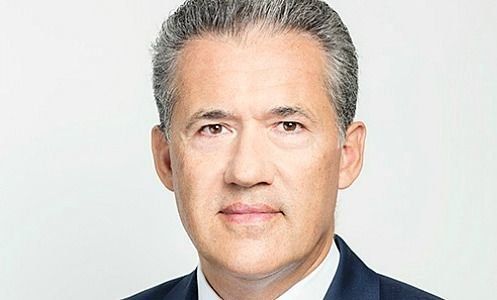A firebrand Catalonian separatist leader accuses a law-and-order government of Franco-era tactics: Madrid and Barcelona are set for an escalation. Beat Wittmann details what this means for investors, in his exclusive essay for finews.first.
finews.first is a forum for renowned authors specialized on economic and financial topics. The texts are published in both German and English. The publishers of finews.com are responsible for the selection.
Spain’s highest court ruled that the Catalan independence referendum was illegal and against the Spanish Constitution, which a clear majority of Catalans voted to accept in 1978.
If Catalonia’s separatist leaders were now to declare independence, this would be an irresponsible act and a direct confrontation against the Spanish state and King Felipe, and would lack any legal validity or political legitimacy. Needless to say, there would be no support whatsoever from the EU or the U.S.
«With images of injured civilians, he handed a public relations victory to the Catalan separatists»
The challenging task of upholding the law and the integrity of the Spanish state lies with Prime Minister Mariano Rajoy, a lawyer by training and a civil servant by profession. Until he made the mistake of using police force in an attempt to achieve this, Rajoy held all the strong cards in his hand. With images of injured civilians going around the world as baton-wielding police sought to prevent the vote from taking place, he handed a public relations victory to the Catalan separatists.
And if the Spanish Government under Rajoy’s leadership invokes Article 155 of the Spanish Constitution and suspends Catalan autonomy, bringing Barcelona under the administration of Madrid, this would pose major questions as to how this would be enforced.
«Separatist President Puigdemont is hell-bent on achieving Catalan independence»
Catalan President Carles Puigdemont, a former journalist, heads an unholy alliance of separatists seeking to drive a radical and highly divisive agenda. He is set to escalate the situation further: the group spans center-right nationalists unhappy with the autonomy status and financial situation as well as radical Marxists wishing to bring down the capitalist system and abolish the monarchy.
Puigdemont’s attempts to paint Catalonia as being politically and economically oppressed by Madrid are pure demagoguery, as are any comparisons with the abuses inflicted on Catalonia under Franco, who died in 1975.
«Rajoy has also lost the crucial swing vote of ‹hearts and minds› in Catalonia»
Catalonian society has been dramatically polarized by the recent events, and it should not be forgotten that Rajoy is heading a minority government in Madrid. Consequently the Catalan situation can only realistically be solved by opening negotiations on regional autonomy and finances, and ultimately by a vote on independence.
Rajoy has also lost the political initiative and the crucial swing vote of ‹hearts and minds› in Catalonia, and if he does not engage very quickly to remedy this and start to engage with the separatists, he risks consigning his coalition government and himself to history – sooner rather than later.
«EU will interfere only at the request of both sides»
The EU sees the impasse in Spain as a matter for the Spanish and Catalonian authorities, and will only take up a role if it is asked by both sides.
Meanwhile, the EU and selected capitals in Europe are certain to appeal to Madrid and Barcelona to de-escalate the conflict and to respect democratic principles and the rule of law. I don’t expect any negative feedback effects on the European economy or capital markets.
«Spanish real and financial assets would be a strong buy on any further weakness»
Spain remains on a positive economic trajectory, and Spanish real and financial assets would be a strong buy on any further weakness. However, over the short term I expect a potentially significant escalation of the political conflict between Madrid and Barcelona.
Unfortunately, we have on the one side Prime Minister Rajoy, combining an approach focused solely on law and order with poor communication skills, and on the other side Catalan President Puigdemont, a separatist who disrespects the law but is a skilled communicator and nationalist demagogue.
Beat Wittmann is chairman and partner of Zurich-based financial advisory firm Porta Advisors for more than two years now. His more than 30-year career in Swiss banking includes stints at both UBS and Credit Suisse as well as Clariden Leu and Julius Baer. He operated his own firm from 2009 to 2015, first independently and more recently under the Raiffeisen Group.
Previous contributions: Rudi Bogni, Peter Kurer, Oliver Berger, Rolf Banz, Dieter Ruloff, Samuel Gerber, Werner Vogt, Walter Wittmann, Alfred Mettler, Peter Hody, Robert Holzach, Craig Murray, David Zollinger, Arthur Bolliger, Beat Kappeler, Chris Rowe, Stefan Gerlach, Marc Lussy, Nuno Fernandes, Richard Egger, Maurice Pedergnana, Marco Bargel, Steve Hanke, Andreas Britt, Urs Schoettli, Ursula Finsterwald, Stefan Kreuzkamp, Oliver Bussmann, Michael Benz, Peter Hody, Albert Steck, Andreas Britt, Martin Dahinden, Thomas Fedier, Alfred Mettler, Brigitte Strebel, Peter Hody, Mirjam Staub-Bisang, Nicolas Roth, Thorsten Polleit, Kim Iskyan, Stephen Dover, Denise Kenyon-Rouvinez, Christian Dreyer, Peter Kurer, Kinan Khadam-Al-Jame, Robert Hemmi, Claude Baumann, Anton Affentranger, Yves Mirabaud, Katharina Bart, Frédéric Papp, Hans-Martin Kraus, Gerard Guerdat, Didier Saint-Georges, Mario Bassi, Stephen Thariyan, Dan Steinbock, Rino Borini, Bert Flossbach, Michael Hasenstab, Guido Schilling, Werner E. Rutsch, Dorte Bech Vizard, Adriano B. Lucatelli, Katharina Bart, Maya Bhandari, Jean Tirole, Hans Jakob Roth and Marco Martinelli.



































